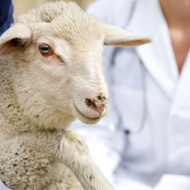
National Sheep Association (NSA) opens Lambing List
The NSA has once again commenced its annual scheme to facilitate connections between sheep farmers and veterinary students.
After previous success, the 2016/17 scheme enables veterinary and agricultural students to find work experience placements whilst assisting sheep farmers during lambing time.
The Lambing List contributes to the NSA Next Generation project, an ongoing scheme to support large animal vets and prospective shepherds. The list also provides veterinary students with a convenient and accessible opportunity to complete an obligatory on-farm placement.
Phil Stocker, NSA chief executive, said: “The Lambing List is hugely valued by both the sheep farmers and students who use it. It’s a very simple but effective process – we collate a list of NSA members looking for help at lambing time and provide contact details so students can approach them directly to ask for a placement.”
The Lambing List is now live and open to existing NSA members to place an advertisement, and members are required to complete a short application form detailing their flock requirements and ewe lambing number forecasts.
Phil Stocker continued: “It’s a great service for our members, but also provides a boost for young people keen to get ahead. It also encourages those who genuinely want to be large animal vets in the future, and agricultural students who want to put themselves ahead of the pack.”
Sheep farmers who are not yet members but interested in using the list can apply for membership at www.nationalsheep.org.uk/membership. Work experience applications commence once the list is sufficient to provide a range of options.



 The Federation of Independent Veterinary Practices (FIVP) has announced a third season of its podcast, Practice Matters.
The Federation of Independent Veterinary Practices (FIVP) has announced a third season of its podcast, Practice Matters.